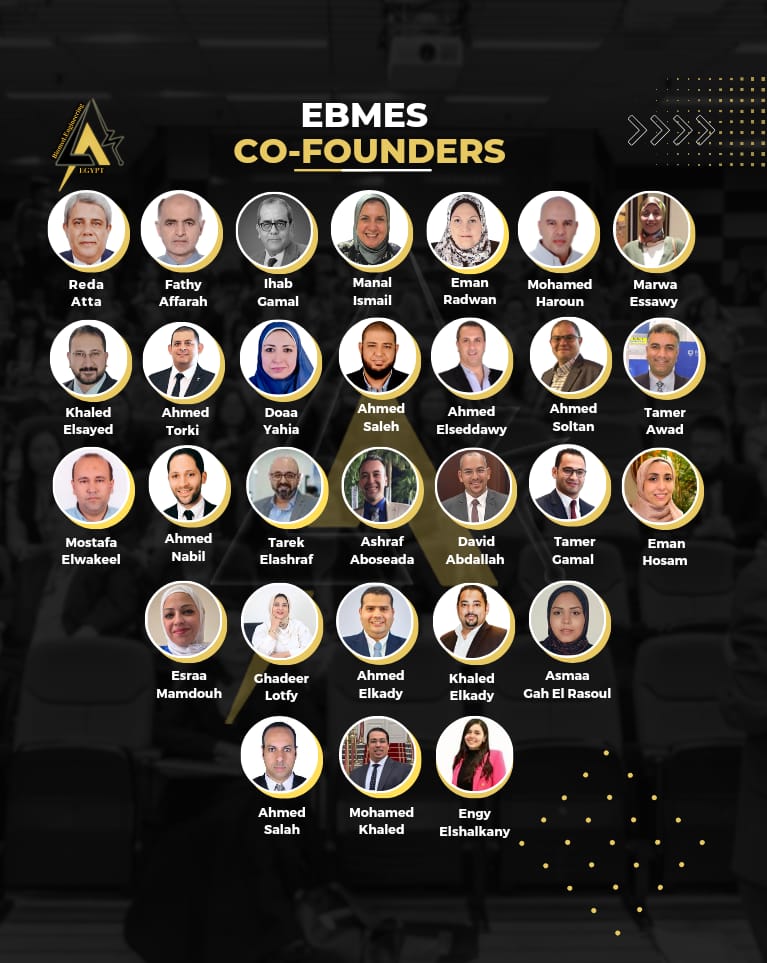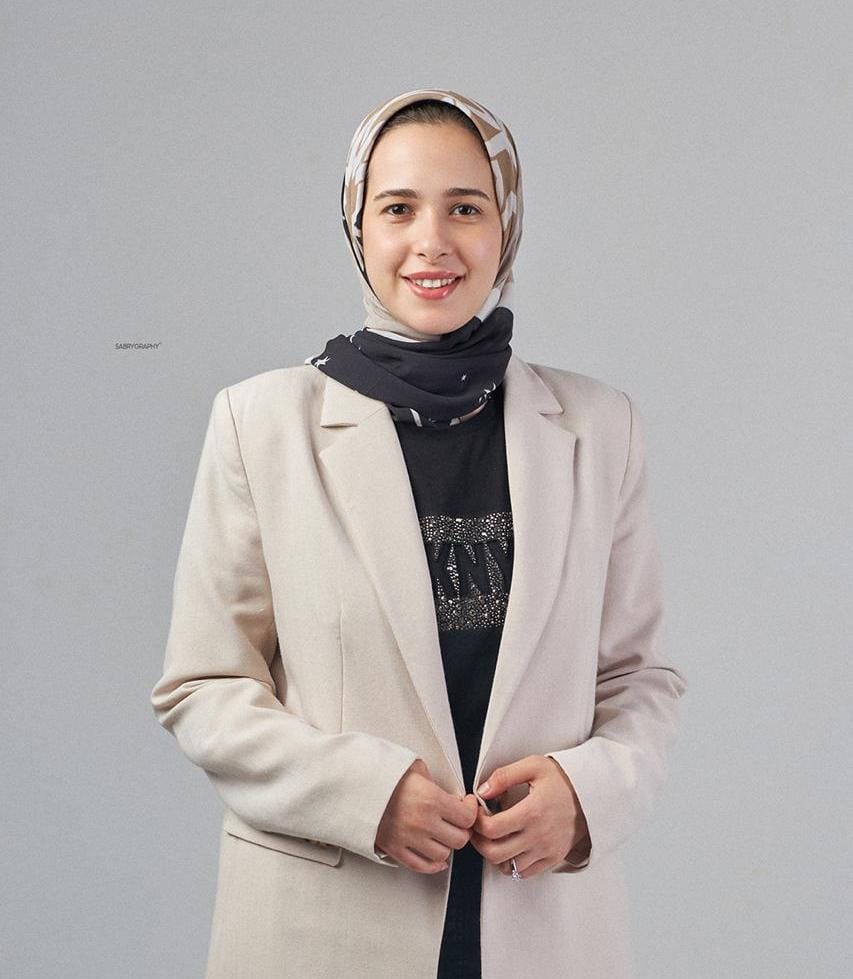About EBMES
Egyptian Biomedical Engineering Society
About EBMES
Egyptian Biomedical Engineering Society
EBMES is a professional non-governmental organization under the law of the Ministry of Social Solidarity established with the no. 7341 for 2023. We are considered the first and largest engineering professional society for Egyptian Biomedical engineers in Egypt. EBMES aim is not only a society representing Egyptian biomedical engineers, but also a united voice expressing what a biomedical engineer could need, think, face, and give to enhance the healthcare industry. A guiding lighthouse for healthcare facilities as we support, develop, and correlate them through sharing each outstanding experience, diverse challenge, comprehensive solution under one umbrella representing us, as Egyptian biomedical engineers.


Vision
Our Vision is to be the Lighthouse for Biomedical Engineering Stakeholders promoting the advancement of Medical Technology in Healthcare Community.

Mission
Our Mission is to build the capacity of biomedical engineering society and provide different collaboration & support channels for all Biomedical Engineering professionals, entities and bodies.

Objectives
- To promote, encourage and advance the education & training of Biomedical Professionals.
- To assist members in the growth and development of their biomedical knowledge by regular exchange of information, ideas, and experience through training programs, workshops, and conferences.
- To establish contact and promote better communication & cooperation between investors, manufactures and Biomedical Professionals.
- To promote improved understanding and cooperation with institutional administrations & authorities.
Board of Directors Members

EBMES ByLaws
“Ethics is knowing the difference between what you have a right to do and what is right to do.”
Potter Stewart
-
-
Principles
-
General Rules:
- We comply with the applicable laws of the countries in which we operate and follow our internal rules, processes, and controls.
- While these codes are not law, they provide appropriate guidance to the industry and to employees for interaction with others.
- We must be aware of and comply with these laws, codes and our internal rules that govern our daily work.
- Violations of the law or failure to comply with our internal rules can have profound consequences for our society and the responsible employee(s).
- We protect and promote our reputation and principles. They are essential for our business success and ensure the sustainable future of our society.
Respect:
- We respect the personal dignity, privacy, and rights of everyone.
- We believe diversity and inclusion enrich our workplace.
- We work together without regard to ethnic origin, culture, religion, age, disability, gender, gender identity, gender expression, sexual orientation, or any other legally protected characteristics.
- We do not tolerate discrimination or any form of harassment, retaliation or inappropriate behavior toward individuals or groups.
- We apply these principles of respect to each other and third parties with whom we interact.
Trust:
- We interact with each other in a respectful and reliable manner.
- In our daily work we are open and honest.
- We take our responsibilities seriously; we are dependable, and we only make promises we can keep.
- We are sincere. We help clarify and eliminate potential deficiencies, problems, and misunderstandings.
- We deal openly with mistakes, and we continuously give and seek feedback – from and to managers, peers, and employees.
Responsibilities
Leadership model:
-
Creating a working environment based on trust and collaboration and being available to discuss with our employees about uncertainties on compliance with legal or regulatory requirements, Industry Codes of Conduct, or internal rules.
- Setting a good example and ensuring the teams understand the importance of acting in accordance with the Business Conduct Guidelines.
- Fulfilling all organizational and supervisory duties
Working conditions:
-
No discrimination or intimidation: The principles of equal opportunity and equal treatment are guaranteed without regard to ethnic or social origin, culture, religion, age, disability, gender, gender identity, gender expression, sexual orientation, or any other legally protected characteristics.
- Free choice of employment: No one should be employed or forced to work against their will.
- Prohibition of child labor: Child labor is strictly prohibited.
Conflicts of interest:
-
We are not influenced by personal interests when making business decisions.
- We make decisions in the best interest of our society and not based on personal interests.
- We anticipate and avoid situations in which the appearance of a conflict of interest may arise.
- We inform our managers of any personal interest that might exist in connection with the performance of our duties in the society.









